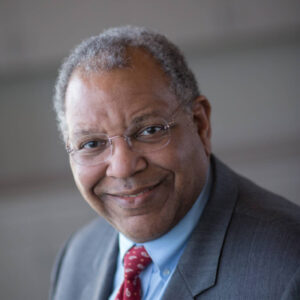Harmon Eyre, MD, died on May 31 in Salt Lake City. He was 84 years old. From 1993 to 2008, he served as the chief medical and scientific officer (CMSO) of the American Cancer Society.


The ACS’s then chief executive officer John Seffrin recruited Eyre to the position of CMSO from the University of Utah Cancer Center. Their nearly 15-year partnership would usher ACS into what many consider its golden age, as ACS’s impact dramatically increased in the scientific, healthcare, and political arenas.
Eyre built one of the world’s leading cancer control and surveillance programs. ACS epidemiologists would make population observations that the organization used to influence policy. For example, ACS epidemiologists would analyze the ACS cohort study, known as the Cancer Prevention Study 2 (CPS-2).
They were among the first to show a correlation between obesity and the risk of cancer. The group defined cancer health disparities and conducted sentinel studies on air pollution, cancer, and cardiac disease. This group generated a publication record rivaling that of the faculties of the top schools of public health.
Eyre also oversaw the ACS grants program. It was and is the largest private cancer research funding program in the United States. When the National Cancer Institute reduced grant opportunities for young investigators, Eyre convinced the ACS board to allow its research program to emphasize support for beginning investigators.
By the time of his retirement, more than half of the recipients of a first R01 investigator-initiated grant from the NCI in the previous year had received their first competitive grant funding from the ACS.
When politicians forced NCI to stop funding tobacco control grants that studied the influence of big tobacco on politicians, Eyre was a leader in arranging for ACS support for these grants.
Eyer became CMSO after some controversy regarding the involvement of corporate entities in screening recommendations. He established a credible process for developing trustworthy cancer screening guidelines that incorporated ethical principles and the disclosure of conflicts of interest. It also included careful review of and grading scientific data by a diverse group of experts in epidemiology and cancer treatment.


Source for all photos: ACS




The ACS prostate cancer screening guideline was the first to go through this process. It was the first screening recommendation calling for informed decision-making between the patient and the physician. The guideline acknowledged the legitimate concerns about overscreening, overdiagnosis and overtreatment of the disease, but also the hope that prostate cancer screening might save lives. The 1997 prostate screening guideline remains relevant today. Numerous organizations in the U.S., Canada, and Europe have copied it. Informed or shared decision-making is the standard in prostate and lung cancer screening.
Eyre built one of the world’s leading cancer control and surveillance programs.
Harmon Eyre grew up in Utah. His parents were schoolteachers. He attended college at Utah State University and then the University of Utah School of Medicine. He was a medical house officer at Johns Hopkins. He completed a fellowship in medical oncology at the NCI in 1970 and joined the faculty of the University of Utah School of Medicine. In 1971, Eyre became an ACS volunteer. He joined the ACS national board in 1978 and was elected ACS national president in 1988.
Eyre was a man of integrity, with common sense and a deep understanding of science and medicine. He was a mentor to many including this author, who succeeded him as CMSO at ACS.
Eyre was married to Julie Sears Eyre for more than 65 years.
The author is Bloomberg Distinguished Professor of Oncology and Epidemiology at Sidney Kimmel Comprehensive Cancer Center, Johns Hopkins University












